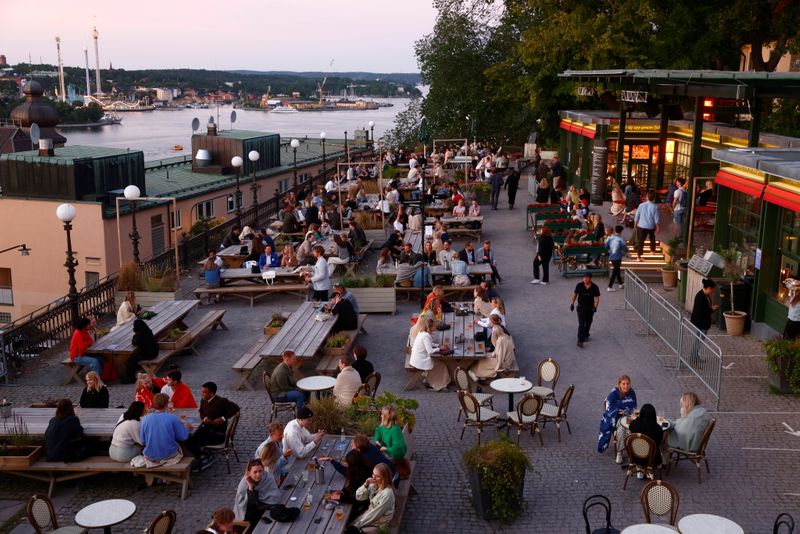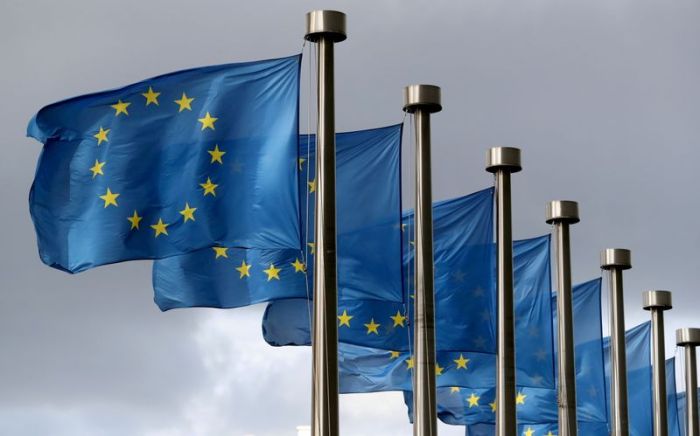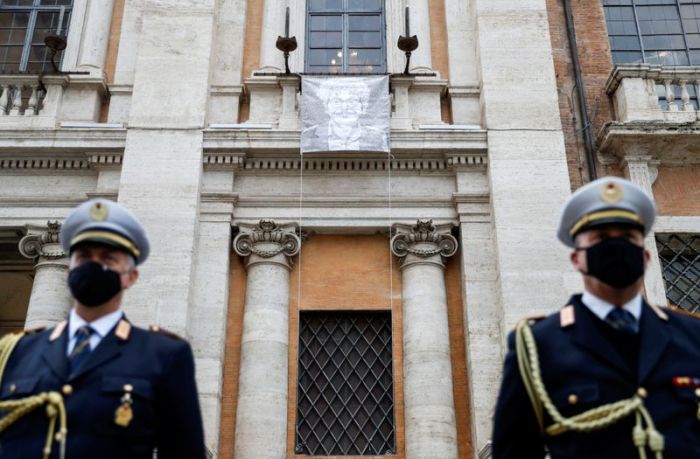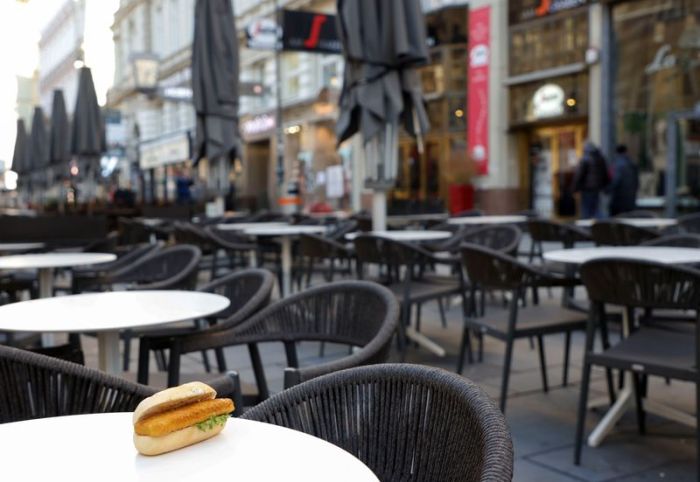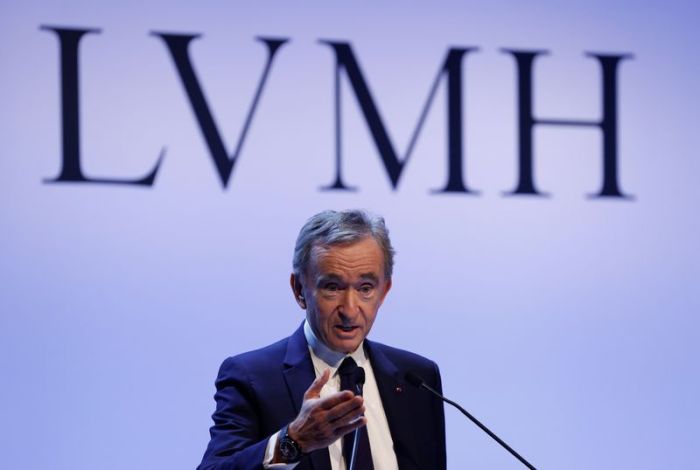STOCKHOLM (Reuters) – Sweden will reintroduce a series of limited measures to curb rising COVID-19 infections in the Nordic country, urging renewed social distancing and the use of masks in public transportation, the government said on Tuesday.
Cases in Sweden have risen in recent weeks after a relatively calm autumn. Hospitalizations and the number of patients requiring intensive care are still among the lowest per capita in Europe but also have started to creep higher.
“We see an increased spread of infection, but still from low levels,” Prime Minister Magdalena Andersson told a news conference. “We need to work together so that the situation doesn’t get worse.”
Nearly all pandemic restrictions were phased out as vaccinations rose and COVID-19 deaths and severe cases slowed to a trickle during the summer, like elsewhere fueling hopes the country was finally leaving the health crisis behind.
Since then, cases have again begun to mount, if at a lower pace than in most countries across Europe.
The Omicron variant, thought to be more transmissible than earlier versions of the virus, has been identified in 11 cases so far in Sweden, much fewer than in neighbouring Denmark and Norway.
The centre-left government presented a three-tier road map for additional measures if the situation deteriorated further.
Vaccination passes required for indoor events with more than 100 participants have been in place since the beginning of the month and the government said it was putting preparations in place to extend it to smaller gatherings, such as restaurants.
Around 85% of the population aged 12 and older have received at least one dose of COVID-19 vaccine and 80% have had two shots or more.
The government also said it would reintroduce a series of financial measures for stopping people from going to work while displaying symptoms, such as getting sick benefits from Day one without need for a doctor’s note and compensation if you have to isolate with an ill child or spouse.
Sweden has opted against lockdowns throughout the pandemic and relied on mostly voluntary measures aimed at social distancing. It has seen several times more deaths per capita than its Nordic neighbours but less than most European countries that opted for strict lockdowns.
Several aspects of Sweden’s handling of the pandemic, such as a slow introduction of mass coronavirus testing and inadequate care for vulnerable groups, have been strongly criticised by a government-appointed COVID-19 commission.
(Reporting by Simon Johnson and Johan Ahlander; Editing by Niklas Pollard and Bill Berkrot)

